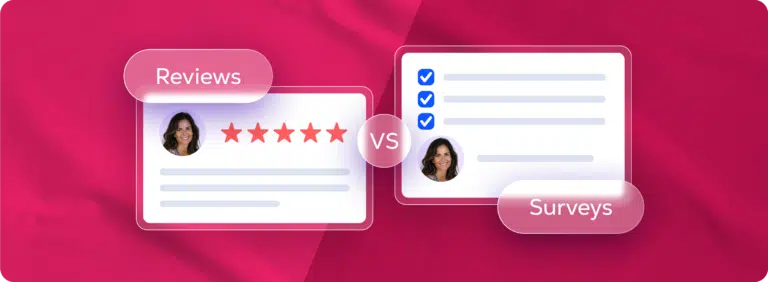When Your Guests Arrive And You Can’t Be There…
Leaving the Keys with a Friend or a Neighbor
Probably the simplest and most common key exchange solution. It’s a classic formula: leave your key with someone trusted who lives nearby, let them know at what time your guests are planning to arrive, and give your guests their phone number to call when they’re close to the residence.
A method like this has its benefits. It gives the key exchange a personal touch, introducing the guest to the neighborhood and generating the kind of connection and conversation that makes hosting special. Plus it’s easy, secure, and, in most cases, free.
That being said, it also leaves a lot up to chance. If a guest is early or late, the key-holding friend/neighbor might be out, or worse, asleep! In the case of unexpected delays, a simple exchange can turn into a grumpy mess of calling, waking up, and a lot of wasted time for all parties involved.

So if you do plan on using a friend or a neighbor to deliver your key, think about taking advantage of some of these tips:
- Lots of communication: The best way to avoid a late guest fiasco is to keep in contact with your guest on their journey to your listing. Double-check the status of their flight, and have them text you when they land. This also means keeping in contact with your friend/neighbor, so that they’re updated on the location and time table of your traveling guest.
- Compensating your key-deliverer: If it looks like a guest is going to be particularly untimely or the exchange is going to be at all inconvenient for your friend/neighbor, consider compensating him or her for their trouble. This can be in the form of a lunch or coffee, a bottle of wine, or even cash if the job is really taxing.
- Late fees: If you’re relying on the friend/neighbor method for keys, think about charging guests extra when they are late to your listing, especially if they are late without warning. Adding a small late fee will encourage guests to pay more attention to their arrival time, communicate more with you, and hopefully ensure that any wasted time caused by late guests is repaid.
Leaving the Keys at a Nearby Store
A nearby local coffeehouse, other store or business is a great place to leave a key because, unlike neighbors, they’re open and available throughout the day. This method typically works with a non-chain store where you have a good relationship with the staff and can trust them to be responsible. Depending on how well you know the people working there, you might want to think about compensating your designated key-holder at the store either monetarily or with another gesture of appreciation.
When you drop off the key, also think about buying a sandwich or coffee in advance for your guest. That way, when your guest comes looking for the key they can be greeted with both a smile from the key-holder and a fresh latte—a killer first impression.
This method comes with all the convenience benefits of the friend/neighbor method, with a little more structure and dependability because you can plan around the store’s consistent working hours.
The disadvantage is that, if a guest arrives past closing, it’s much more difficult to get the key. If the owner doesn’t live close by, they may even have to wait until the next day. So the risks of missing the exchange window are a lot bigger.
Picking a Place
Some criteria for a good key location:
- Within walking distance (no more than a few city blocks from your property)
- Serves food or drink – Avoid bars, but try to find somewhere your guests can sit down and enjoy, and where you can recommend a dish or two.
- Open for a long time – While there are 24/7 places you could consider, these are mostly limited to fast food restaurants and gas stations, neither of which will impress your guest. Still, try to find somewhere that opens early and stays open until 10 or 11:00 PM.
- A good relationship with staff – You don’t necessarily need to be on a first name basis with the barista, but if you’re going to trust a store with your keys it’s better if it’s a place you frequent, where the staff recognizes your face.
Security
Even if you have a good relationship with one or two staff members, don’t let down your guard when it comes to safety. Handing your keys to one staff member doesn’t necessarily mean they’re going to be the only one holding onto it. Before trusting a store with your keys:
- Make sure the staff doesn’t know the address of your place.
- Make sure you know who will be on duty at your guest’s estimated time of arrival.
- Plan a backup key exchange in case the plan falls through.
- Let the manager or owner know about the arrangement so that he can keep track of the staff members holding the keys.
Asking the Owner
If you don’t know the owner, be sure to introduce yourself. You can start off with a little flattery and let him know how much you like his store. If he seems reluctant about managing the key exchange, be sure to offer some form of compensation for the service. Give him all the details about your guest’s arrival, including their phone number just in case.
Leaving Instructions for your Guest
Supply a map showing the location of the store, along with step-by-step directions. And to tie it together, offer a dish recommendation for when they find it.
Leaving the Keys with Key Exchange Service Businesses
Keycafe
If you don’t want to coordinate with a store yourself, there’s a great service called Keycafe that works directly with coffee houses to manage key exchanges. The basic service is $4 a month with an additional $2 for every pick-up.
Once you leave your key at one of their locations, cafe staff will put a fob on your keys with a unique ID that links those keys to your account. From there you’ll be able to manage who has access to your set keys via smartphone, by sending guests a unique passcode for the cafe baristas to scan.
A great thing about the service: if you know a guest is going to arrive late at night, Keycafe does have special 24 hour locations where you can leave your key instead of the usual coffee shop.
KeyNest
Another great option is KeyNest, which offers hosts convenient and secure locations to store their keys for arriving guests. These include thousands of stores as well as automatic lockers.
Once you share the location of the keys as well as the unique collection code with the relevant guest, they’ll be able to retrieve the keys without any hassle or time-constraints.
Hosts will be notified when keys are collected or dropped off so they’ll always be in the loop.
City Co-Pilot
Alternatively, you could coordinate with the independent front desk service called City Co-Pilot, which will facilitate the key-exchange process for you. You can register for a single key-exchange for $9.99 or a package of 5 key-exchange credits for $44.99 wherein you save $1 per exchange. City Co-Pilot will accept key drop off and exchange 24/7, given that you schedule yours and your guest’s timing beforehand. They also offer the option to arrange for a courier to pick up your key for you, so the process will really be as simple as possible. You can make all reservations immediately following account registration on their website.
Unfortunately, this convenience is currently only in one location in New York City, but if it’s near your property it’s worth looking into.
Leaving the Keys to Third-Party Services
Using a Property Manager
How much do Property Managers Cost?
It depends on how many properties you need to be managed, but most ask for somewhere between 15% and 30% of a listing’s monthly rent.
Using a Dedicated Key Holder
This is someone you pay a small fee to, who is entrusted with your keys and key delivery. Like a pet-sitter, they’ll hold onto your keys while you’re away and, unlike a friend or neighbor, will always be available for the exchange when your guests arrive.
That’s not to say that a dedicated key holder can’t be a friend or a neighbor, it most definitely can be. However, this distinction is important: instead of a favor, holding a key is a job.
Prices vary widely, but considering that you only have to employ a keyholder for two or three days (one day to manage delivery, one day to manage drop-off), don’t expect to pay more than $10-$30 a day. This also depends on whether or not you ask your keyholder to meet the guests at your property, or if you plan to have a guest meet a keyholder at his/her home. The former option is recommended because it prevents your guest from having to navigate to two different addresses in an unfamiliar area.





